Related Research Articles

Sir Thomas Hare was a British proponent of electoral reform.

Malta has a long history and was first inhabited in around 5900 BC. The first inhabitants were farmers, and their agricultural methods degraded the soil until the islands became uninhabitable. The islands were repopulated in around 3850 BC by a civilization which at its peak built the Megalithic Temples, which today are among the oldest surviving buildings in the world. Their civilization collapsed in around 2350 BC, but the islands were repopulated by Bronze Age warriors soon afterwards.

The Nationalist Party is a Christian-democratic, conservative political party in Malta. It is one of two major contemporary political parties in Malta, along with the governing Labour Party. The Nationalist Party is currently in opposition to the Labour Party.
The Royal Commission on Bilingualism and Biculturalism was a Canadian royal commission established on 19 July 1963, by the government of Prime Minister Lester B. Pearson to "inquire into and report upon the existing state of bilingualism and biculturalism in Canada and to recommend what steps should be taken to develop the Canadian Confederation on the basis of an equal partnership between the two founding races, taking into account the contribution made by the other ethnic groups to the cultural enrichment of Canada and the measures that should be taken to safeguard that contribution".
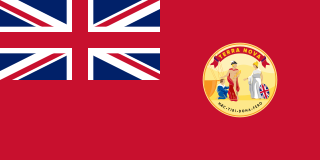
The Dominion of Newfoundland was a country in eastern North America, today the modern Canadian province of Newfoundland and Labrador. It was established on 26 September 1907, and confirmed by the Balfour Declaration of 1926 and the Statute of Westminster of 1931. It included the island of Newfoundland and Labrador, on the continental mainland. Newfoundland was one of the original "dominions" within the meaning of the Balfour Declaration and accordingly enjoyed a constitutional status equivalent to the other dominions of the time.

John Dalli is a former Maltese politician who served as Cabinet Minister in various Maltese governments between 1987 and 2010. He was European Commissioner for Health and Consumer Policy between 2010 and 2012.

Italian irredentism was a nationalist movement during the late 19th and early 20th centuries in Italy with irredentist goals which promoted the unification of geographic areas in which indigenous peoples considered to be ethnic Italians and/or Italian-speaking individuals formed a majority, or substantial minority, of the population.
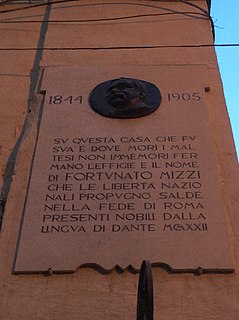
Fortunato Mizzi (1844–1905) was a Maltese lawyer and politician.

Sir Harry Charles Luke was an official in the British Colonial Office. He served in Barbados, Cyprus, Transcaucasia, Sierra Leone, Palestine, Malta, the British Western Pacific Territories and Fiji. He is the author of some books on several of these countries.
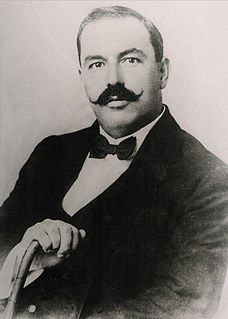
Enrico Mizzi was a Maltese politician, leader of the Maltese Nationalist Party from 1926 and briefly Prime Minister of Malta in 1950.
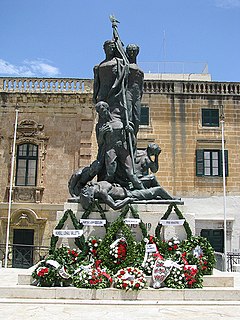
Sette Giugno is a Maltese national holiday celebrated annually on 7 June. It commemorates events which occurred on that day in 1919 when, following a series of riots by the Maltese population, British troops fired into the crowd, killing four. This led to increased resistance and support for the pro-Italian parties that had challenged the British presence on the island.

Colonel Sir Charles Edward Howard Vincent, known as Howard Vincent or C. E. Howard Vincent, was a British soldier, barrister, police official and Conservative Party politician who sat in the House of Commons from 1885 to 1908.

Malta has two official languages: Maltese and English. Maltese is the national language. Until 1934, Italian was also an official language in Malta. The Maltese population is generally able to converse in languages which are not native to the country, particularly English and Italian.
Rowsell is a surname. Notable people with the surname include:

The Constitutional Party was a pro-British political party in Malta. It had representatives in the Maltese Legislative Assembly and Council of Government between 1921 and 1945, and again between 1950 and 1953, forming a government between 1927 and 1930 with the support of the Labour Party. A splinter group, the Progressive Constitutionalist Party was represented in Parliament between 1962 and 1966. The party was very much centred on the figure of its long-time leader Lord Strickland, with party supporters colloquially known in Maltese as "Stricklandjani".

Italian irredentism in Malta is the movement that uses an irredentist argument to propose the incorporation of the Maltese islands into Italy, with reference to past support in Malta for Italian territorial claims on the islands. Although Malta had formally ceased to be part of the Kingdom of Sicily only since 1814 following the Treaty of Paris, Italian irredentism in Malta was mainly significant during the Italian Fascist era.

The Democratic Nationalist Party was a conservative political party in Malta.

The Crown Colony of the Island of Malta and its Dependencies was the British colony in the Maltese islands, today the modern Republic of Malta. It was established when the Malta Protectorate was transformed into a British Crown colony in 1813, and this was confirmed by the Treaty of Paris in 1814.
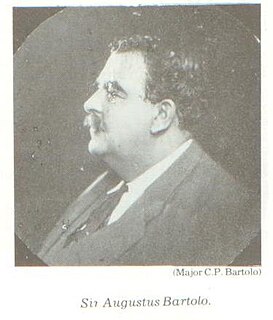
Augusto Bartolo, sometimes known as Augustus Bartolo, was a Maltese journalist, politician and judge. He took an active role in the process of the Maltese constitutional and political development. Being pro-British Bartolo was against the Italian's irredentism claim over Malta. However, in his political life he was opposed the Anglicisation of the Maltese culture, being performed by back then Prime Minister of Malta Sir Gerald Strickland. Augusto Bartolo and Gerald Strickland were both founders of the Constitutional Party. The political party supported the English language during the language question in Malta with Bartolo having showed equal support to both English and Italian, and Strickland English and Maltese. Bartolo took a prominent role in the early governance of Malta working to bring social reforms.
References
- ↑ Malta Historical Society http://mhs.eu.pn/hw/hw20034.html
- ↑ men at the bar https://en.wikisource.org/wiki/Page:Men-at-the-Bar.djvu/440
- ↑ Italian irredentism in Malta and Fueled by Ramen http://slankamen.atwebpages.com/c.pl/244